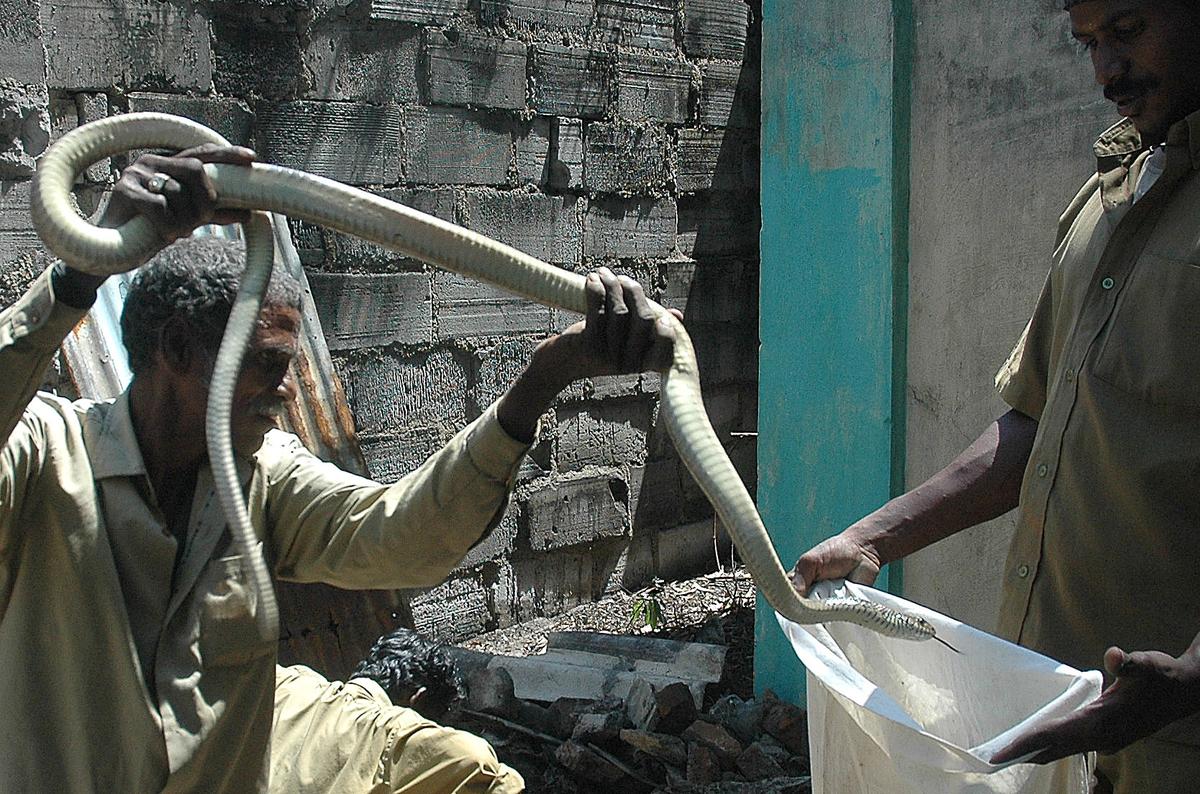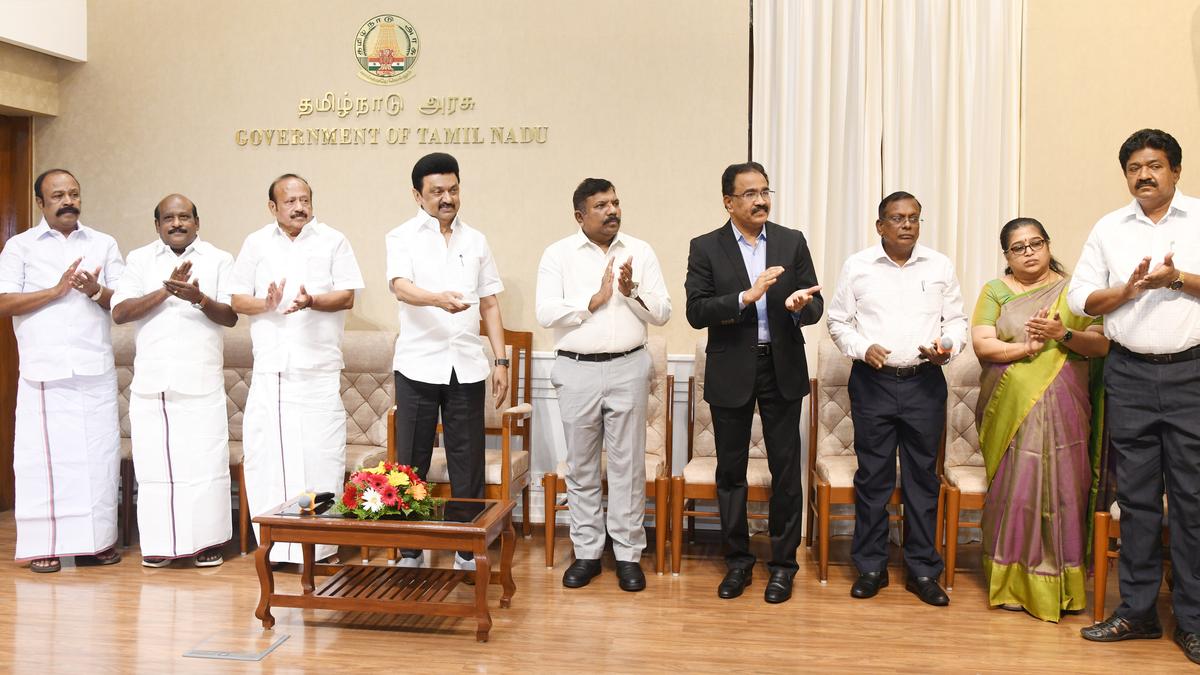Home / tamil-nadu / Tamil Nadu Declares Snakebite Envenomation as Noti
Tamil Nadu Declares Snakebite Envenomation as Noti
By: My India Times
2 minutes read 25Updated At: 2024-11-09

The Tamil Nadu government has taken a groundbreaking step to address the life-threatening issue of snakebite envenomation by officially declaring it a notifiable disease under the Tamil Nadu Public Health Act, 1939. The move, formalized through a Government Order issued by the Health and Family Welfare Department on November 4 and published in the Tamil Nadu Government Gazette on November 6, marks an effort to mitigate the risks associated with snakebites, particularly in rural and snake-endemic areas where medical resources are limited.
Why This Move is Critical for Tamil Nadu's Public Health
Snakebite envenomation is a prevalent yet underreported medical emergency in India, with rural areas being most affected due to their proximity to snake habitats and limited healthcare access. Tamil Nadu, with its extensive rural population and diverse snake species, experiences a significant number of snakebite cases each year, often resulting in severe health complications or fatalities. The declaration as a notifiable disease will make it mandatory for hospitals and healthcare providers to report cases of snakebite envenomation, enabling the government to collect accurate data, monitor trends, and formulate effective intervention strategies.
Government Initiatives to Support Affected Areas
By designating snakebite envenomation as notifiable, the Tamil Nadu government intends to improve early intervention and treatment facilities across the state. The new classification will help the government gather data to identify high-risk areas, allocate resources, and conduct public awareness campaigns about preventative measures and first-aid practices. Additionally, this move is expected to enhance training for rural healthcare workers to ensure they are equipped to handle snakebite cases efficiently and administer life-saving anti-venom treatments.
Reducing Fatalities and Disabilities Through Swift Medical Responses
Snakebite cases in Tamil Nadu frequently go unreported or untreated due to limited access to healthcare facilities, especially in rural communities. By making snakebite incidents notifiable, the government aims to streamline medical responses, potentially reducing the number of fatalities and long-term disabilities associated with snakebite envenomation. Data collected under this mandate will enable the state to improve the distribution of anti-venom supplies and allocate emergency response teams to regions where snakebite cases are most common.
A Collaborative Approach to Combatting Envenomation
Tamil Nadu’s move aligns with the World Health Organization’s (WHO) categorization of snakebite envenomation as a high-priority neglected tropical disease. It highlights the government’s commitment to addressing rural health crises and aligns with global efforts to reduce the impact of snakebites. By involving healthcare providers, local authorities, and communities, the Tamil Nadu government is setting an example for other states in India to recognize and act upon the pressing health issue of snakebite envenomation.
Looking Ahead
Declaring snakebite envenomation as a notifiable disease is only the first step in Tamil Nadu’s long-term strategy to reduce snakebite-related health risks. Public health campaigns, improved access to anti-venom, and enhanced rural healthcare infrastructure are expected to follow, potentially transforming the way snakebite cases are managed and responded to in India.
....The Tamil Nadu government has taken a groundbreaking step to address the life-threatening issue of snakebite envenomation by officially declaring it a notifiable disease under the Tamil Nadu Public Health Act, 1939. The move, formalized through a Government Order issued by the Health and Family Welfare Department on November 4 and published in the Tamil Nadu Government Gazette on November 6, marks an effort to mitigate the risks associated with snakebites, particularly in rural and snake-endemic areas where medical resources are limited.
Why This Move is Critical for Tamil Nadu's Public Health
Snakebite envenomation is a prevalent yet underreported medical emergency in India, with rural areas being most affected due to their proximity to snake habitats and limited healthcare access. Tamil Nadu, with its extensive rural population and diverse snake species, experiences a significant number of snakebite cases each year, often resulting in severe health complications or fatalities. The declaration as a notifiable disease will make it mandatory for hospitals and healthcare providers to report cases of snakebite envenomation, enabling the government to collect accurate data, monitor trends, and formulate effective intervention strategies.
Government Initiatives to Support Affected Areas
By designating snakebite envenomation as notifiable, the Tamil Nadu government intends to improve early intervention and treatment facilities across the state. The new classification will help the government gather data to identify high-risk areas, allocate resources, and conduct public awareness campaigns about preventative measures and first-aid practices. Additionally, this move is expected to enhance training for rural healthcare workers to ensure they are equipped to handle snakebite cases efficiently and administer life-saving anti-venom treatments.
Reducing Fatalities and Disabilities Through Swift Medical Responses
Snakebite cases in Tamil Nadu frequently go unreported or untreated due to limited access to healthcare facilities, especially in rural communities. By making snakebite incidents notifiable, the government aims to streamline medical responses, potentially reducing the number of fatalities and long-term disabilities associated with snakebite envenomation. Data collected under this mandate will enable the state to improve the distribution of anti-venom supplies and allocate emergency response teams to regions where snakebite cases are most common.
A Collaborative Approach to Combatting Envenomation
Tamil Nadu’s move aligns with the World Health Organization’s (WHO) categorization of snakebite envenomation as a high-priority neglected tropical disease. It highlights the government’s commitment to addressing rural health crises and aligns with global efforts to reduce the impact of snakebites. By involving healthcare providers, local authorities, and communities, the Tamil Nadu government is setting an example for other states in India to recognize and act upon the pressing health issue of snakebite envenomation.
Looking Ahead
Declaring snakebite envenomation as a notifiable disease is only the first step in Tamil Nadu’s long-term strategy to reduce snakebite-related health risks. Public health campaigns, improved access to anti-venom, and enhanced rural healthcare infrastructure are expected to follow, potentially transforming the way snakebite cases are managed and responded to in India.
By: My India Times
Updated At: 2024-11-09
Tags: tamil-nadu News | My India Times News | Trending News | Travel News
Join our WhatsApp Channel
















.jfif)

























































































.png)
 (1).png)























